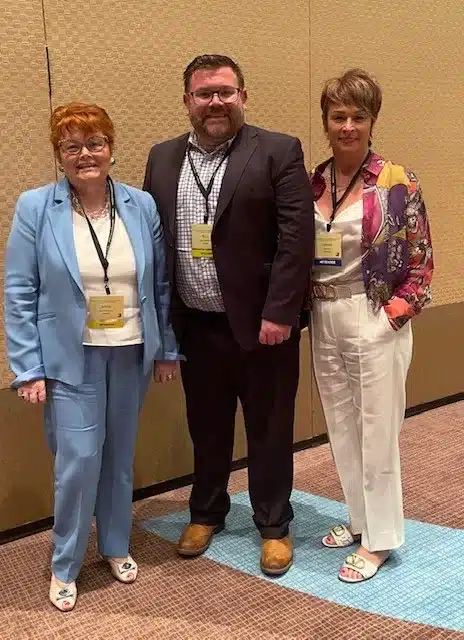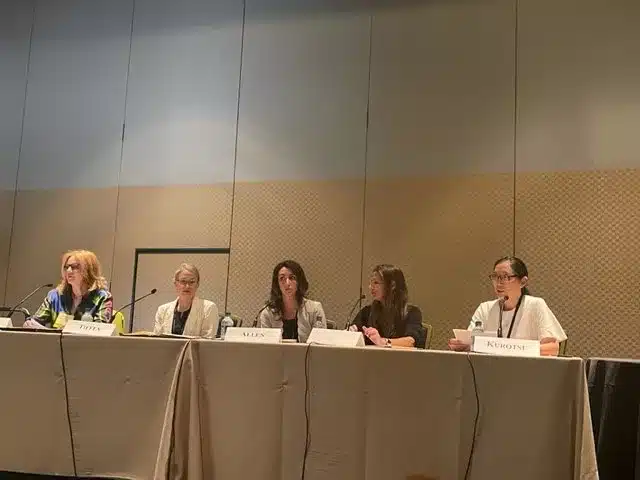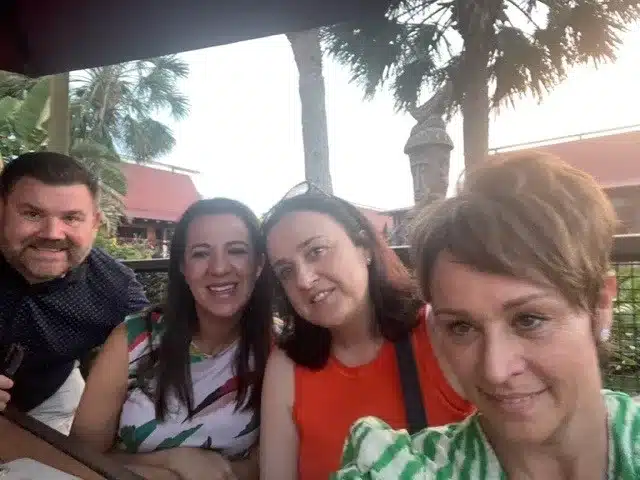Our founder Louise attended the 2023 AILA/GMS Annual Global Migration Forum last week
The topics of the event included ‘The Future of Innovative Technology in Global Migration’, ‘Digital Nomad Visas and Remote Work Permits: The Nomad’s Perspective’, ‘Remote Work in the Context of Global Migration and Employment’, ‘What is the Future for the Actual “Practise” of Global Migration Law?’
Innovative technologies like data analytics, artificial intelligence (AI), and blockchain are poised to radically transform the global migration landscape. Data analytics and predictive modelling can greatly enhance the efficiency and effectiveness of immigration processes. Immigration authorities leveraging these technologies can process applications faster, and with enhanced accuracy. Predictive modelling can also be a powerful tool for anticipating migration trends, thus enabling governments to plan and manage immigration more proactively.
AI is significantly altering the way immigration services are delivered. Notably, AI-powered chatbots are widely used to provide instantaneous, customized responses to visa application queries, which greatly reduces processing time and minimizes human error. Further advancements in AI could assist in identifying potential security risks, allowing immigration authorities to focus their resources more efficiently.
Blockchain technology promises a secure and transparent system for recording and verifying transactions, which is beneficial for managing immigration documentation. The decentralization of this technology ensures the authenticity and permanence of records, significantly reducing the risk of fraudulent activities.
The digital revolution, coupled with the rise of remote work, has led to the emergence of a new class of migrants, known as digital nomads. In response to this shift, an increasing number of countries are introducing digital nomad visas and remote work permits. These allow individuals to live and work legally in these countries. For digital nomads, these visas offer numerous advantages, such as greater geographic flexibility and the ability to choose a location based on personal preferences, cost of living, and overall quality of life. Moreover, these visas provide legal protection and stability, ensuring that digital nomads can work remotely without violating local immigration laws.
The exponential growth of remote work is reshaping the dynamics of global migration and employment. In the past, pursuing better job opportunities often required physical relocation. However, the ability to work from anywhere means individuals can now access global job markets without leaving their home countries. This shift has implications for both businesses and governments. For businesses, remote work enables them to tap into a global talent pool without geographic limitations. Meanwhile, governments need to reevaluate their immigration policies and labour laws to cater to this new category of workers.
As technology continues to evolve, so too must the practice of global migration law. Legal professionals will need to become familiar with new tools and technologies, from AI-enhanced legal research to blockchain-based contract management systems. As digital nomad visas and remote work permits become more commonplace, legal practitioners will need to navigate these new migration categories, requiring a deeper understanding of international labour law, tax law, and digital rights. The increased prevalence of remote work further blurs the lines between immigration and employment, potentially leading to an increased demand for legal professionals proficient in both areas. This interdisciplinary approach to migration law will be critical in the digital age.
The future of global migration is becoming increasingly digital. With the advent of new technologies and the rise of remote work, the landscape of immigration is undergoing significant changes. As we navigate the future, it’s crucial to embrace these changes and harness the power of innovation to create a more efficient, transparent, and inclusive global migration system.







